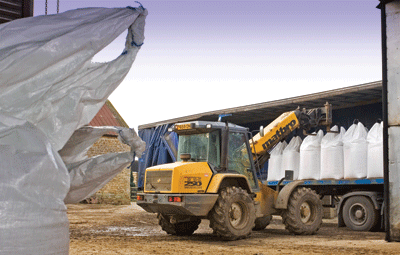News extra: Load security is in the bag

For the past two years, Vosa officers in north-east Scotland have been advising haulage firms to use independent straps and ratchets to secure fertiliser bags to trailers. However, according to transport firms MT spoke to, this equipment can split the inner liners of fertiliser bags, which contain substances such as ...
This article is for registered users only
Please login or create a FREE account to read the full article
Want to read more?
Register now for free to access the full article.
To access our great content on the Motor Transport website and to get a free copy of our weekly Executive Brief newsletter.
Once registered, you’ll get access to:
- In-depth breaking news every working day of the year
- All the best careers advice for you and your business
- Profiles of every winner at the Motor Transport Awards
- The richest set of road transport industry data in the UK
- You may also be eligible for a free print or digital copy of Motor Transport











